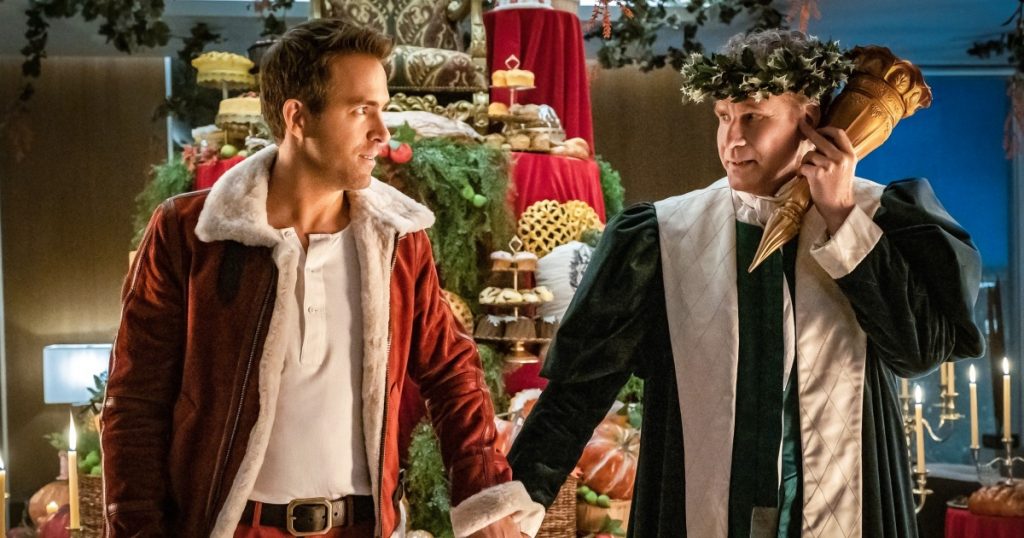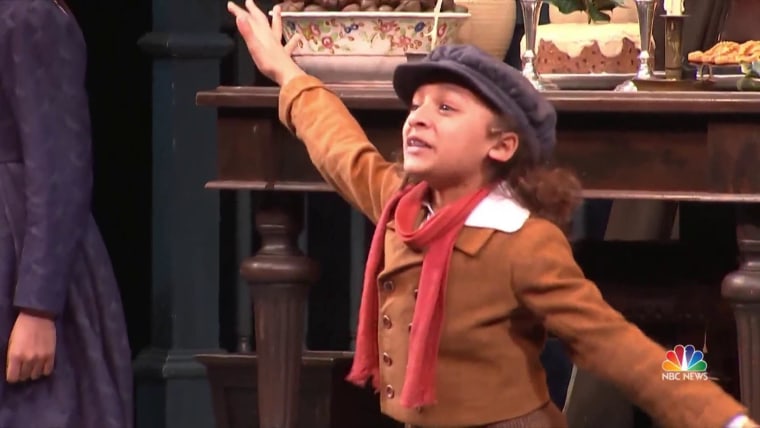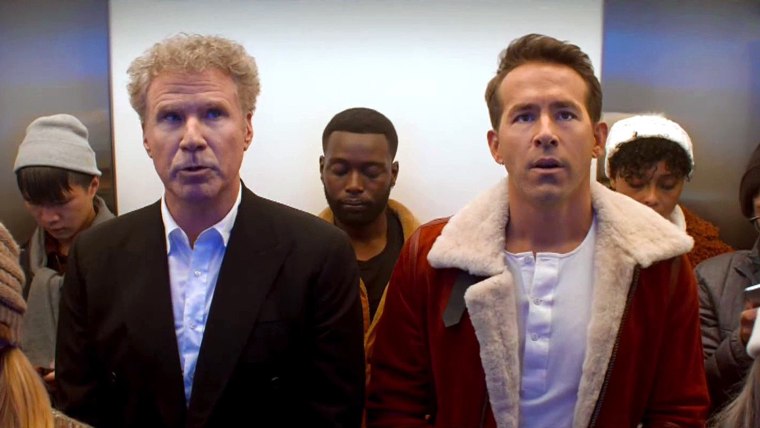
‘Tis the season for capitalist traditions like Black Friday and Cyber Monday — and the world of entertainment isn’t far behind. “A Christmas Carol,” Charles Dickens’ most enduring story about the humanizing of a greedy, evil businessman, is a folktale for a corporate world, where the rich are redeemed by love. This Christmas, audiences have two versions to choose from, both of which debuted in theaters before moving to streaming mere days later. The Americanized “Spirited” is available on Apple TV+, while the British-based “Scrooge: A Christmas Carol” debuted on Netflix on Friday. But both renditions’ insistence on preaching this secular myth of the billionaire turned benefactor at a time when the news is full of stories to the contrary means both musical adaptations hit the wrong key.
So many modern Christmas celebrations were established during the Victorian era.
So many modern Christmas celebrations were established during the Victorian era. Originally published in 1843, Charles Dickens’ “A Christmas Carol” was that era’s equivalent of a bestseller, with 13 editions published in the first year of print alone. Historians say the story has been performed since at least 1844, with Dickens creating his own “public reading” one man show in 1853. (Public readings remain a tradition that continues to this day in the U.K.) In the 20th century, the story moved to movies, and finally TV. It has since been adapted almost every way possible, from gothic horror to Muppets.
After countless adaptations, a synopsis feels unnecessary, but suffice it to say a greedy, miserly business owner, Ebenezer Scrooge, is visited on Christmas Eve by a series of specters who effectively scare him into making better life choices. Dickens’ humanist story reinforced the idea of the holiday season as a secular time of giving back that everyone can participate in, and its details became memetic shorthand. Ebenezer and Scrooge have come to stand for a miser; the ghosts of past, present and future are guides to becoming a better person; a Bob Cratchit-type is a good and faithful everyday guy; a Tiny Tim is shorthand for an innocent. The phrases “Bah humbug!” and “Merry Christmas” were both popularized by the story, as was “God bless us, everyone.”
The moral is accessible, and the structure is simple enough that adaptations can easily incorporate the appropriate zeitgeist. American adaptations, for instance, tend to focus more on Bob Cratchit and family and the saving of Tiny Tim, and less on how Scrooge lost the love of his life to his capitalist greed. (“The Muppet’s Christmas Carol,” for example, cast perpetual hero Kermit T. Frog as Cratchit rather than Scrooge.) And that’s where our two newest versions come in. In a year when it seems nearly every monopolistic company is laying off workers, the cathartic comeuppance of a hard-hearted billionaire makes cultural sense. But neither film is willing to even admit its cruel corporate czar is a bad person, as if the producers fear insulting the rich men who run their respective streaming services.
Of the two, “Scrooge: A Christmas Carol” is the more disappointing. This animated version boasts an incredible A-list lineup of vocal talent: Luke Evans, Jessie Buckley, Olivia Colman, Jonathan Pryce and Johnny Flynn. The animation is vibrant, capturing the feel of the old Claymation-style Christmas TV specials. And while some of the musical numbers feel too much like Disney knockoffs, others are quite moving.
The problem is Scrooge. The film wants him to be good person deep down and keeps finding psychological excuses for his poor behavior. He’s not a miser because he loves money — he’s someone who grew up with food insecurity! He climbed the ladder on his own, but it’s apparently totally fine that he pulled it up behind him. Hs wealth will just trickle down! Perhaps that’s a story Liz Truss would like to be true, but that’s why her prime ministership was outlasted by lettuce.
Like many American renditions, “Spirited” treats Scrooge as more of a means to an end and dispatches with him almost immediately. An admittedly clever take on the story, it posits his experience wasn’t unique; the three Christmas ghosts (Sunita Mani, Will Ferrell and Tracy Morgan) wander around as a pack, hitting up unsuspecting evil corporate jerks for redemption as a regular holiday side gig. This year’s target, Clint Briggs (Ryan Reynolds), is a social media influencer, who arrives singing about being a war on Christmas profiteer. Soon he and Ferrell’s ghost of the present are locked in a battle of wills, with the ghost determined to change Briggs, despite Briggs seeing no reason why he might need to change.
Ferrell and Reynolds are, as usual, very fun to watch, which almost offsets how clumsy the script is, or what terrible singers some of the cast members are. (There are times when it feels like this is a first look for a show that will need a nice long off-Broadway run to work out the kinks.) Ferrell also brings extra goodwill left over from his hitting it big in another Christmas myth maker, “Elf.” But in a strange twist, “Spirited” neither proves Briggs was ever totally cruel, or that he ever really redeems himself, either. Instead, it’s the ghost whose perspective shifts, admitting his drive to change people comes from his own unhappiness. It is a bizarre and somewhat grotesque rewriting of the story’s moral; it’s “A Christmas Carol” seen through the lens of bothsiderism.
“Scrooge,” thankfully, will be easily and quickly forgotten, replaced with an inevitable new animated version, while the unpolished nature of “Spirited” should relegate it to the dustier corners of the streaming universe. However, the entertainment world’s refusal to notice a societal shift is more troubling. Dickens’ story is timeless for a reason, and there should be space right now to make a version that speaks to the current moment. Too bad neither of these knows how.

 Latest Breaking News Online News Portal
Latest Breaking News Online News Portal






